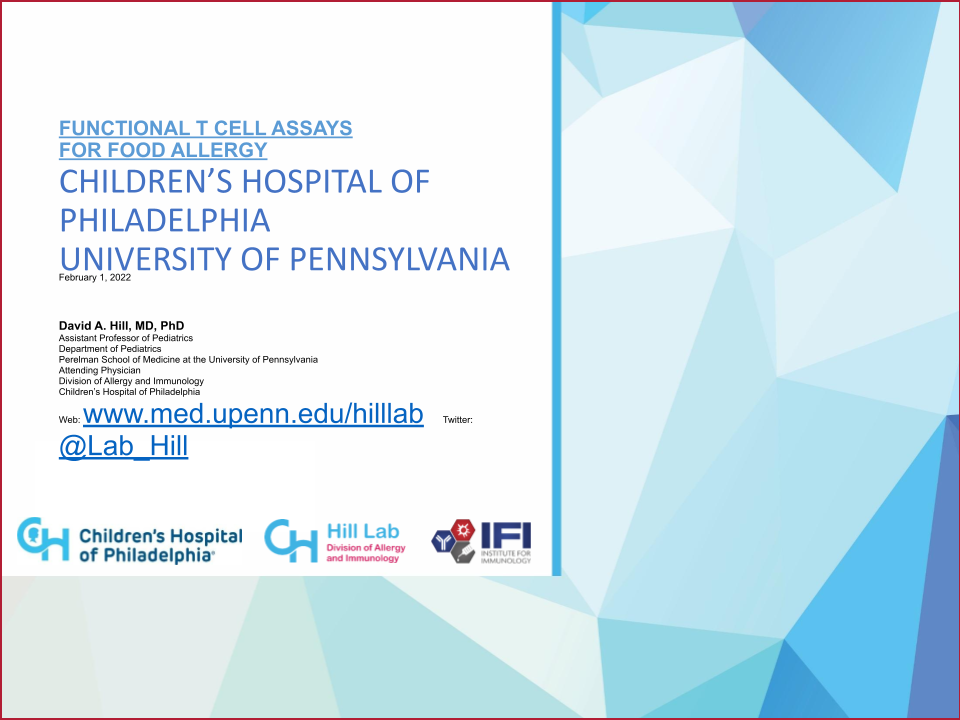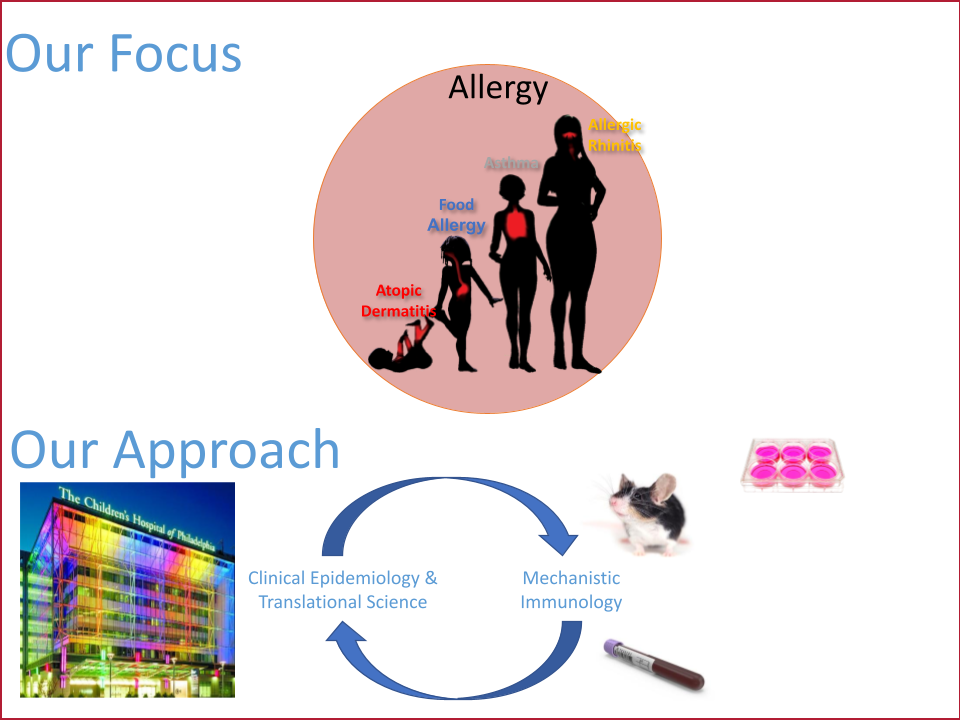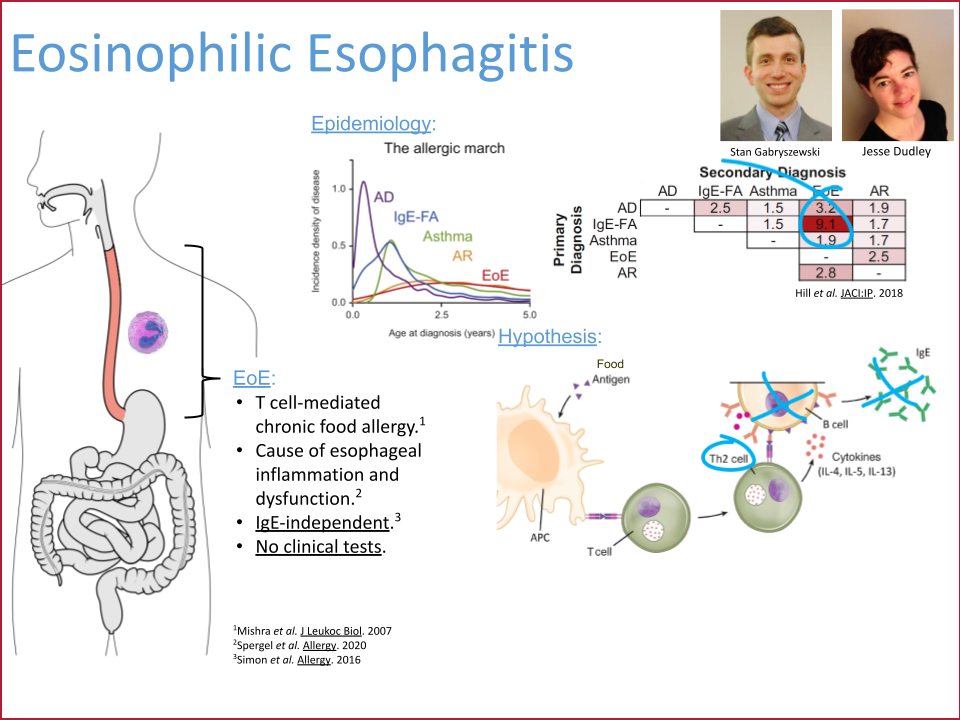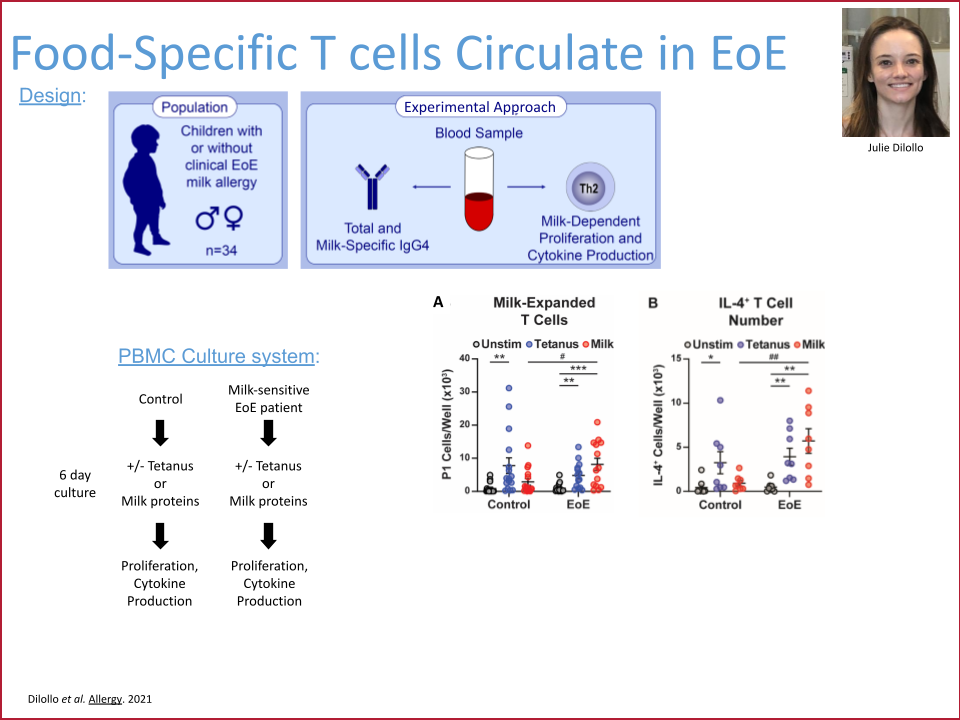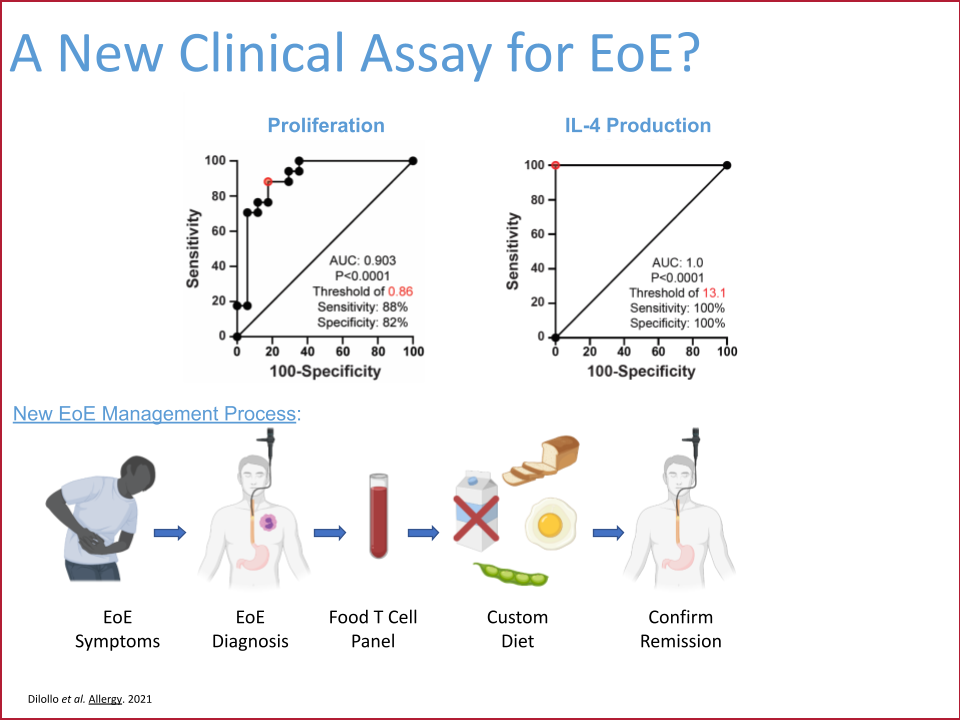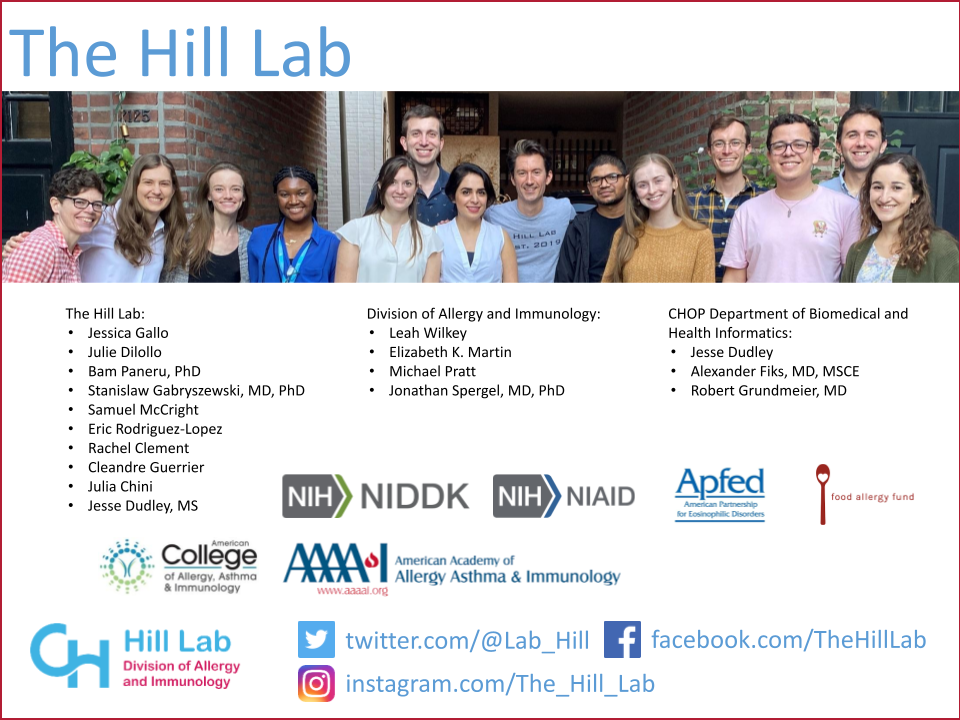Functional T Cell Assays for Food Allergy
Funded by the Food Allergy Fund
This project aimed to develop functional T cell blood assays for use in the diagnosis, management, and monitoring of food allergy. The promise of such clinical tests was to significantly reduce the time to identify and to determine dietary removal of allergenic foods for non-IgE-mediated food allergies such as eosinophilic esophagitis (EoE) and food protein-induced enterocolitis (FPIES). These tests would also increase the ability to monitor pathogenic and regulatory T cell responses during oral immunotherapy.
This project completed in December 2024 and successfully developed a minimally invasive blood test that accurately determines the contribution of milk to a patient’s EoE food allergy. This test can be performed on a single tube of peripheral blood, results in six days, and has 100% sensitivity and 80% specificity for presence or absence of EoE milk allergy. The EoE milk allergy blood test has completed development in the Hill Lab and has been transitioned to the CHOP Clinical Immunology Lab. The plan is for it to be offered to CHOP patients in late 2025.
Next steps: EoE soy, wheat, and egg allergy blood tests
Based on the successful approach used to develop the EoE milk allergy test, the Hill Lab has developed similar blood tests for soy, wheat, and egg. Effectiveness of these new tests in patients with confirmed EoE food allergy needs to be tested. A prospective interventional trial is planned which will enroll CHOP EoE patients, perform the soy, wheat, and egg tests (along with the milk test), and provide the results of this testing to the managing CHOP physician. The physician will then integrate the results of the blood testing with other clinical information and work with the patient to develop a personalized elimination diet. After a period of food avoidance, success of this elimination diet will be evaluated by clinical endoscopy. Ultimately, this trial will provide critical pre-clinical data to allow for transition of the soy, wheat, and egg EoE blood tests to clinical use and hopefully ultimately replace the need for endoscopy for diagnostic purposes.
